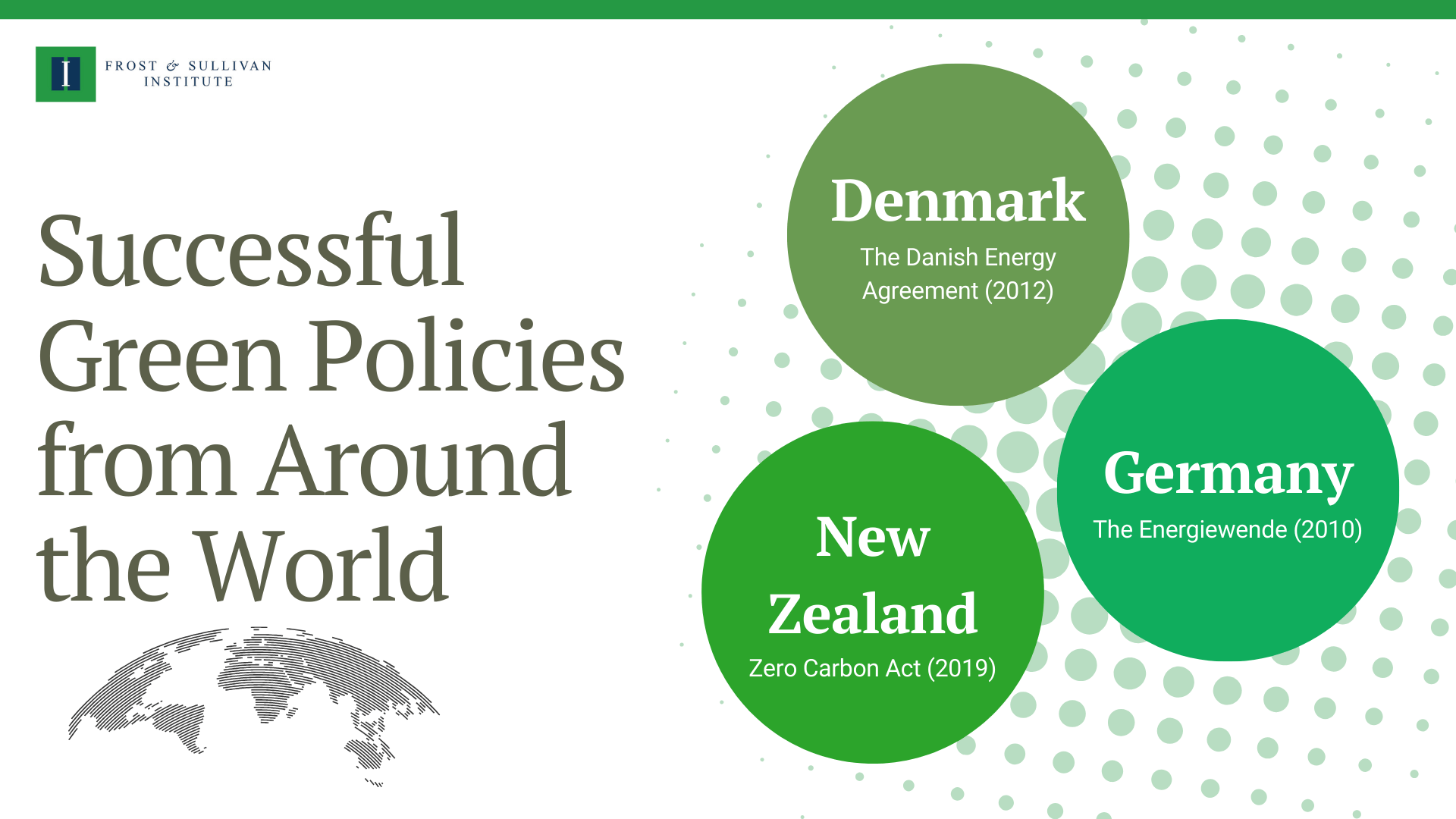
02 Apr The Need for Policies That Are Shaping a Greener Future
As the world faces the undeniable impacts of climate change, environmental degradation, and resource depletion, implementing policies prioritizing sustainability and green initiatives has become more urgent. In 2021, 33% of deaths due to air pollution occurred in South Asia. The need for environmentally friendly plans and policies is no longer a matter of choice but a requirement to ensure the planet’s health for future generations.
Green policies are strategies and regulations designed to promote environmental sustainability by reducing pollution, conserving resources, and addressing climate change. These policies often focus on reducing carbon emissions, energy efficiency, renewable energy adoption, waste reduction, and protecting ecosystems. The transition to a green economy requires a shift from traditional practices to ones that are more environmentally conscious, economically feasible, and socially responsible.
Why We Need Green Policies
Rising global temperatures and the depletion of vital resources indicate the need for proactive, sustainable policies that encourage investing in green initiatives, drive innovation, create new job markets, reduce health risks, and protect ecosystems. Policymakers must also engage businesses, communities, and citizens in the development and implementation of these policies to ensure broad-based support and long-term success.
- Combatting Climate Change: Global temperatures are rising, and climate change is already having disastrous consequences. 2024 was the warmest year on record, with an average global temperature of 1.6ºC. Green policies, such as the reduction of greenhouse gas emissions, renewable energy adoption, and waste management practices, are critical in mitigating these impacts. They offer solutions to reduce carbon footprints and slow the pace of global warming.
- Sustainable Resource Management: Natural resources like water, forests, and fossil fuels are finite. Without policies aimed at sustainable resource management, these resources will be depleted, leaving future generations vulnerable. The consumption of fossil fuels was 1.5% more in 2023 than in 2022, with coal, oil, and natural gas comprising 82% of the global energy mix, according to the Energy Institute’s latest report on world energy. Green policies that emphasize recycling, efficient use of resources, and the development of sustainable alternatives help to conserve these precious assets.
- Improved Public Health: Pollution is a major driver of respiratory illnesses, heart disease, and other health issues. In 2021, 8.3 million deaths were attributable to air pollution worldwide. Green policies that reduce emissions from transportation, industry, and energy production can significantly improve air quality, leading to better public health outcomes.

Various countries have introduced green policies that have had positive impacts on both the environment and their economies. These policies serve as models for others to follow as the world works toward a more sustainable future.
- Denmark – The Danish Energy Agreement (2012)
In 2012, Denmark implemented a policy called the Danish Energy Agreement, which set ambitious targets for renewable energy production and to be carbon neutral by 2050. The agreement included plans to phase out coal, increase offshore wind energy capacity, and invest in energy-efficient technologies, including a ban over the installation of fossil-fuel-based boilers in new buildings, from 1st January 2013 onwards. By 2020, Denmark had succeeded in generating over 50% of its electricity from renewable sources.
- Germany – The Energiewende (2010)
Germany’s “Energiewende” or “Energy Transition” policy, launched in 2010, aimed to reduce carbon emissions and increase the use of renewable energy. The Energiewende focuses on phasing out nuclear power, reducing greenhouse gas emissions, and boosting renewable energy use, especially wind and solar. The goal is that by 2050, 80% of the country’s electricity will come from renewable sources. Germany has also set the target of becoming greenhouse gas neutral by 2045 with targeting to reduce emissions by 65% by 2030 and 88% by 2040.
- New Zealand – Zero Carbon Act (2019)
In 2019, New Zealand passed the Zero Carbon Act, making it one of the first countries to set legally binding carbon-neutral targets. The law requires New Zealand to reduce its carbon emissions to net zero by 2050, with a focus on reducing emissions from agriculture and forestry. The Zero Carbon Act also established an independent climate commission to advise the government on climate change policies.
The transition to a greener, more sustainable world is a complex challenge, but it is one that is crucial for the future of our planet. Green policies are not just an environmental necessity they are an economic opportunity and a social responsibility. By adopting policies that promote sustainability, nations can shape a future where economic growth, environmental protection, and social well-being go hand in hand. As demonstrated by countries like Denmark, Germany, China, and New Zealand, the world can indeed take meaningful steps toward a greener future, but it requires bold leadership and unwavering commitment to the planet’s health.
Blog by Shreya Ghimire,
Research Analyst, Frost & Sullivan Institute
